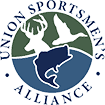Did you know that when you book a guide in the Florida Keys, it’s customary to call the guide the night before and ask what you should bring them for lunch? But what about trout fishing in the Northwest? Or bass fishing in the South? Are there unwritten rules for guides everywhere you go?
Just like you, I love to fish. Much like many of my fellow Ranger Pro Staff members, even when we have time off away from competition we still find time to go fishing just for fun. And sometimes, just like you, I will book a guide to take me fishing. Whether it’s saltwater or freshwater, the objective is all the same: you are paying them to help you catch more fish and/or access to certain water. Don’t worry about the little rules though, just make sure you ask the right questions and you won’t have to worry about having a bad time on your trip or offending anyone.
The things to remember about guides: there are good guides and there are bad guide. The good ones work very hard for their money. While they may know the water you are fishing like the back of their own hand, fish don’t always behave accordingly. A bad day of fishing isn’t always the guide’s fault. But, the biggest problems that occur between anglers and guides have less to do with fishing and more to do with miscommunication. Here’s a list of things you should remember when booking your next guided fishing trip.
Book early whenever possible. It gives you a better chance of being able to book the guide you want during the time you want. Trust the guide’s advice on when the best fishing is available and adjust your schedule accordingly.
Get references. Don’t ever plan a day on the water with a person you know nothing about. And don’t worry about offending anyone, since a reputable guide is more than willing to give you some past clients’ names.
Be honest about your fishing abilities and let the guide know what you can and can’t do. Also, let them know how much fishing you do on your own. This will help the guide better a plan an outing for you that will not only help you be more successful but will make the trip more enjoyable. Also, let the guide know up front if children will be along on the trip.
Determine whose gear is being used and who is providing things like lunches, snacks, drinks and other necessities. Most guides provide all of this and things like sunscreen in the price, but better to ask and not regret being hungry and sunburned later. If you want to fish with your own gear, let the guide know or let him make some gear recommendations to you.
Don’t ever ask the guide to bend the rules, whether they are the rules of his boat (like no alcohol on board) or game laws. If the guide asks you to break a game law, don’t do it.
Determine an exact time and place that you will meet the guide and determine how long the trip will last.
Don’t tell the guide what to do, be respectful and helpful whenever possible.
Tipping is important. Remember, these guides work hard for you and should be rewarded accordingly. Standard tip for a fishing guide on a good day should be 20 percent of the day’s rate for each person on board. On really good days, that tip should be even higher. If you catch a fish of a lifetime, be prepared to give the tip of a lifetime. Your generosity will not be forgotten.
Many of my fellow Ranger pro staff members either got their starts guiding or still do guide on both fresh and saltwater when not fishing tournaments. They do it not only for the livelihood that it provides them, but because they love the sport. A great guide has a passion for fishing that he will share with everyone and that makes them a great resource to have along the next time you want to fish in some unfamiliar water.
Ranger Boats Pro Staff member Luke Clausen is the 2006 Bassmaster Classic winner and the youngest angler in professional fishing history to eclipse the $1 million career earnings mark.







